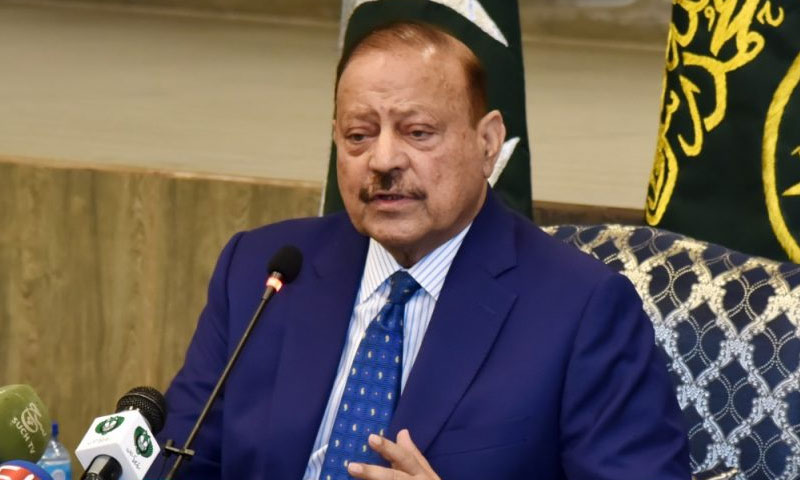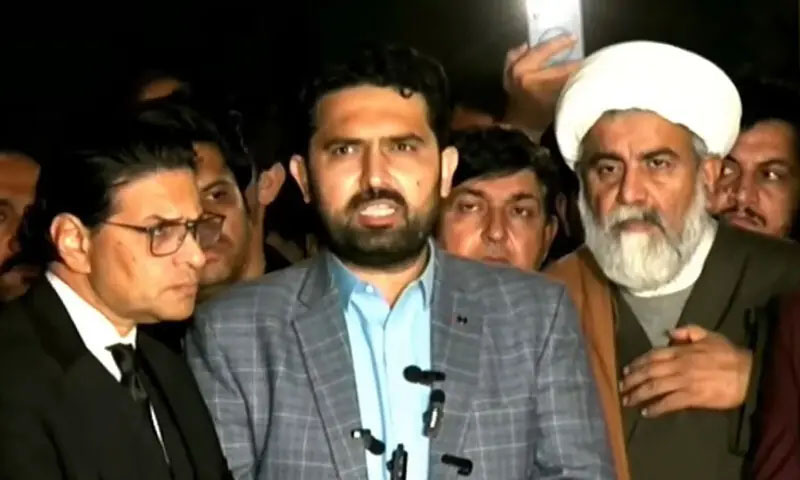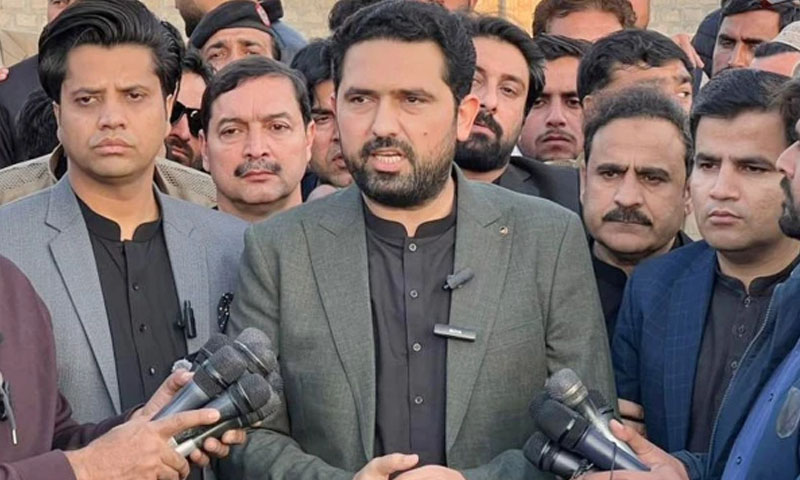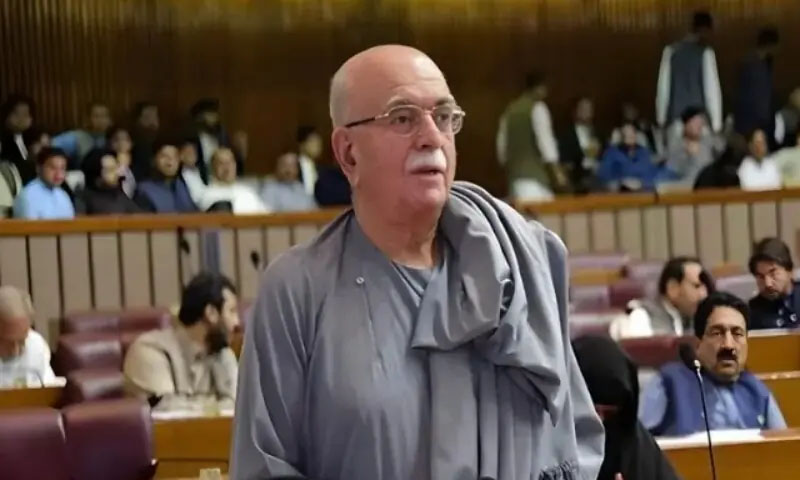- Web Desk
- Jan 31, 2026
Challenges facing the transgender community in Sindh ahead of general election
-

- Web Desk
- Jan 25, 2024
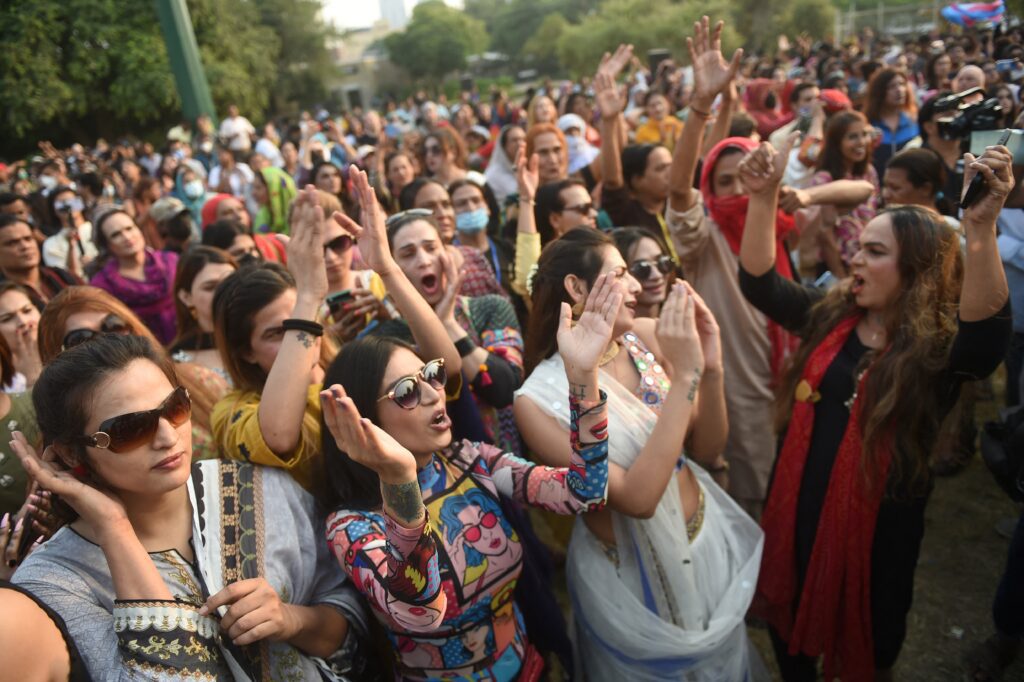
Imran Athar Mangi
KARACHI: As the transgender community in Sindh gears up for the upcoming general election, concerns loom large due to the persistent challenges they face. Shahzadi Rai, a trailblazing trans activist and the first elected member of the Karachi Municipal Council, sheds light on the obstacles encountered during the 2018 elections, setting the stage for the community’s apprehensions.

Rai recounts the distressing experience at polling booths in 2018, where community members were subjected to mockery and name-calling by workers from various political parties. Instances of whistling and taunts accompanied their presence, making the act of casting a vote a disheartening ordeal. Rai emphasizes the need for understanding, revealing that even when transgender individuals stood separately in the women’s line, objections arose.
The disenfranchisement of the transgender community is further exacerbated by administrative hurdles. After the Sharia Court’s decision, NADRA ceased issuing identity cards, eliminating a crucial avenue for their political participation. The Supreme Court now grapples with the challenge posed by the transgender community and civil society against the Federal Sharia Court’s decision to invalidate the Transgender Act on July 17, 2023.
Another critical issue surfaces with the underreporting of the transgender population. While official statistics suggest a meager 2500, the community contends that their actual numbers in Sindh hover around 50,000. The discrepancy raises questions about the accuracy of data and the government’s commitment to acknowledging and addressing the needs of the transgender community.
The Health Department of the Government of Sindh launched the Pre-Exposure Prophylaxis Program (PrEP) in collaboration with the United Nations on June 7, 2022. Despite the initiative’s intention to address healthcare needs, the lack of identity cards and voter registration presents a barrier to the transgender community’s participation in the upcoming elections.
Reflecting on the 2018 general election, Rai describes the absence of provisions such as separate voting booths and the absence of a third line, illustrating a lack of sensitivity to the unique challenges faced by the transgender community. Rai’s experience working at a polling station highlighted the need for more inclusive measures, which, unfortunately, were absent.
The disregard for transgender rights extends beyond the electoral process. Rai criticizes the failure of the government and other institutions to address the community’s concerns adequately. In the absence of proper legislation and action, the transgender community finds itself marginalized and without the necessary support to claim their rightful place in society.
Rai points out the reluctance of political parties, religious groups, and the media to champion transgender rights. The derogatory language and dismissive attitude towards the transgender community persist, reinforcing harmful stereotypes and perpetuating a narrative of weakness.
As the election season approaches, Rai issues a poignant call for the media to play a pivotal role in rectifying this situation. She emphasizes the need for government-sponsored media campaigns, both on social media and mainstream platforms, to raise awareness about transgender rights at polling stations. The aim is to create an environment where transgender individuals feel respected, empowered, and free from the fear of becoming a subject of mockery or spectacle during the voting process.
In conclusion, Shahzadi Rai highlights the urgency for societal acceptance, governmental action, and media advocacy to ensure the transgender community’s equal participation in the democratic process. As Sindh has historically been at the forefront of progressive thinking, it is now crucial for all stakeholders, including political parties, media outlets, and the government, to address these issues collectively and pave the way for a more inclusive and respectful electoral landscape.
Zarish, a resident of Safura Council in Karachi, sheds light on the profound challenges the transgender community faces as they navigate the complex terrain of identity cards and voter registration. Following the Sharia Court’s decision, their identity cards have been frozen, with no issuance or renewal in sight. The bureaucratic hurdle demands a medical certificate, an unnecessary requirement that questions the community’s dignity in a society where others aren’t subject to similar scrutiny.
Voter Registration
Voter registration, intrinsically linked to identity card issuance, faced a significant setback as the last date of July 21 passed without progress. The entire process came to a standstill under the jurisdiction of NADRA, leaving the transgender community unable to participate in the upcoming elections.
Zarish discloses that the estimated transgender population in Karachi is approximately 22 thousand, with 63 percent originating from other districts of Sindh and Punjab. The community, however, faces ridicule and derogatory comments from various political quarters, adding another layer of hardship.
The difficulties don’t end there. On polling day, the transgender community encounters a dual challenge — first, the denial of their existence, and second, being relegated to the men’s line until they cast their votes. This lack of recognition and empathy underscores the need for systemic change in electoral processes.
The demographic shift within the transgender community is alarming, with a significant decrease noted in all divisions of Sindh except Karachi. The 2017 census reported 5,954 eunuchs in Sindh, a number that plummeted by 37 percent to 3,745 in the 2023 census, indicating a worrisome trend of marginalization.
Uzma Yaqoob, Executive Director of Forum for Dignity Initiatives (FDI) Pakistan, expresses concern about the deep-seated fear and hatred campaigned against the transgender community, impacting their identity. She urges political parties, especially those at the national level, to actively include transgender rights in their manifestos and rally discussions. The onus is on influential parties like Pakistan People’s Party, Pakistan Muslim League-N, Pakistan Tehreek-e-Insaaf, and Jamaat-e-Islami to champion the cause of transgender equality within their constituencies.
However, the road ahead remains challenging. Shahzadi Rai, a knowledgeable and aware member of the transgender community, is poised to participate in the 2024 elections. Yet, the broader community, lacking the necessary support and understanding, faces an uphill battle. The media and social organizations are called upon to play a pivotal role in fostering awareness and support for transgender rights.
Munwar Ali Ghangharu, the director of the Pakistan Statistical Office, underscores the absence of compiled data on the transgender population in Sindh. Despite varied estimates, a concrete understanding remains elusive until comprehensive data is officially announced.
In conclusion, the transgender community in Sindh grapples with systemic hurdles that extend beyond identity cards and voter registration. The upcoming elections serve as a critical juncture for political parties and society at large to reevaluate their stance, actively champion transgender rights, and pave the way for a more inclusive and equitable electoral process.
Federal Sharia Court Decision on Transgender Act
The Federal Sharia Court, led by Acting Chief Justice Muhammad Anwar and Justice Khadim Hussain, recently delivered a significant decision addressing transgender rights. The court affirmed that eunuchs cannot alter their gender identity, emphasizing that individuals cannot self-identify as male or female. While urging the government to provide essential facilities, the court declared that Islam inherently safeguards transgender rights. The decision asserted that gender is linked to biological sex, highlighting the integral connection between gender and various religious practices.
Transgender Act and Gender Determination
The court validated Section 2 of the Transgender Act, stating it aligns with Sharia principles. It specified that transgender individuals are entitled to all basic rights enshrined in the constitution. The court emphasized that transgender status would be determined by the predominance of physical influences, categorizing individuals based on male or female dominance. Furthermore, the court underscored that changing gender through impotence is not permitted in Sharia, insisting that one’s gender remains as assigned at birth.
Challenges for the Election Commission
Uzma Yaqoob, Executive Director of Forum for Dignity Initiatives (FDI) Pakistan, raised concerns about the Election Commission’s ability to facilitate transgender participation in elections. She pointed out resource constraints and urged the media to prioritize substantial issues over trivialities in prime time. Yaqoob proposed dedicating an hour of TV programming to transgender-related content to foster awareness.
Youth Engagement and Political Parties
Yaqoob emphasized the pivotal role of political parties in addressing transgender issues at every forum. She called for mobilizing voters by outlining concrete plans for transgender inclusion, such as scholarships and job quotas. Additionally, she stressed the importance of engaging the youth to identify and address the challenges faced by transgender individuals in schools, colleges, and universities.
Transgender Population Statistics and Advocacy Efforts
According to ongoing census data in Sindh, Karachi division harbors the highest number of eunuchs. Notably, advocacy efforts have led to an increase of 116 registered transgender voters compared to previous elections. Saba Gul, Chairman of Indus Welfare Association, strives to uplift the transgender community, combatting stereotypes and promoting dignified lives.
Education and Employment Challenges
Saba Gul expressed concern about the high illiteracy rates among Karachi’s eunuchs, emphasizing the need for educational opportunities. Bandia Rana called for increased employment opportunities for educated eunuchs, suggesting a two percent job quota. Ramsha emphasized that this small quota could significantly impact the community’s livelihood and reduce reliance on begging.
Voter Registration and Identity Card Issues
Director of the Election Commission, Babar Malik, disclosed that NADRA provides voter gender data, and approximately 3,029 registered eunuchs across the country are eligible to vote in the upcoming elections. However, when questioned, NADRA officials declined to discuss concerns about identity card issuance for the transgender community.
In summary, the transgender community in Sindh faces a complex web of legal, societal, and administrative challenges. Despite legal advancements, there is a pressing need for systematic changes, public awareness, and concrete measures to ensure the inclusion and upliftment of transgender individuals in various facets of society, especially during electoral processes.

